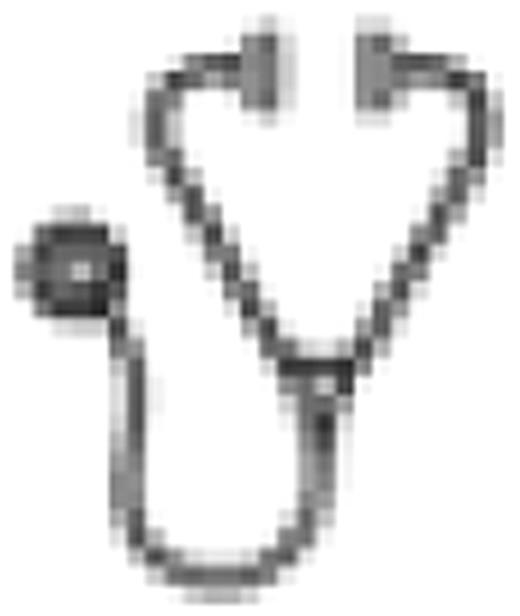Abstract
In 2008, first results of a multicenter, international randomized phase III trial (CLL8) were presented, showing superiority of FCR chemoimmunotherapy for response rates and progression-free survival (PFS) when compared to FC chemotherapy. We now report updated results with a longer median observation time of 37.7 months (mo).
817 treatment-naïve patients (pts) with good physical fitness and CD20-positive CLL randomly (1:1) received treatment with 6 courses of either FCR or FC therapy. Both treatment arms were well balanced with regard to sex, age, stage, genomic aberrations and IGVH gene status. The median age was 61 years (range 30 to 81), 25.7% pts were female in both arms, 64.1% were Binet B, 31% Binet C and 4.9% Binet A. The median cumulative illness rating scale (CIRS) score was 1 (range 0-8). The overall incidences of trisomy 12 and abnormalities of 13q, 11q23, and 17p13 detected by FISH were 12%, 57%, 25%, and 8%, respectively.
A mean number of 5.2 treatment courses were delivered in the FCR arm vs 4.8 courses in the FC arm (p=0.006). Dose reductions by more than 10% in at least one treatment course were performed in 47% (FCR) and 27% (FC) of pts (p<0.001), respectively. 74% (FCR) and 67% (FC) of pts received 6 cycles (p=0.02). The total median cumulative dose applied per pt was 775 mg for F and 7712 mg for C, with no statistically significant difference among the two treatment arms. Pts in Binet stages A and B received more treatment cycles (5.31) than Binet C pts (4.52; p<0.001). Only 57.1% (FC) and 60.3% (FCR) Binet C pts received 6 cycles. Dose reductions by more than 10% were observed in 49% of FCR pts (vs 28% FC (p=0.001).
As of June 2009, the median observation time was 37.7 (mo). 761 pts (FCR 388; FC 371) were evaluable for response, 790 pts (FCR 401; FC 389) for PFS and all for OS. FCR induced a higher overall response rate than FC (95.1 vs 88.4%) and more complete remissions (44.1 vs 21.8%; p<0.001). Median PFS was 32.8 mo for FC and 51.8 mo for FCR pts (p<0.001, Hazard Ratio (HR) 0.56, CI 95% 0.460-0.689). The largest benefit for FCR was observed in Binet stage A and B for CR, ORR and PFS (Binet A: p=0.08, HR 0.423 CI 95%, 0.157-1.135, Binet B: p<0.001 HR: 0.504 CI 95%, 0.390-0.651, Binet C: p=0.08, HR 0.732 CI 95%, 0.514-1.041). In Binet C, the median PFS was 14 mo for pts treated with up to 3 courses FC, but 44 mo for pts that received 4 courses or more (p<0.001). Median PFS for pts treated with up to 3 cycles FCR was 12.5 mo, while for pts with 4 cycles or more, median PFS has not been reached (p<0.001). Statistically significant differences were observed in OS between the two treatment arms. The OS rate at 37.7 mo was 84.1% in the FCR arm versus 79.0 % in the FC arm (p=0.01). In both arms, the median OS has not been reached. Only patients in Binet stages A and B showed a superior OS after FCR treatment (Binet A: HR 0.19, CI 95%, 0.023-1.613 p=0.09; Binet B: HR 0.45, CI 95%, 0.296-0.689, p<0.001; Binet C HR1.4, CI 95%, 0.843-2.620, p=0.168).
As previously reported more hematologic adverse events, particularly neutropenia, were observed with FCR treatment, but this did not result in an increased infection rate. More deaths have occurred in the FC arm (86/396, 21.7%) than in the FCR arm (65/404, 16.1%). In the majority of cases, the underlying cause of death was progressive disease (FC 48/86, FCR 33/65), secondary malignancies (FC 13/86, FCR 5/65) or unrelated causes of death such as myocardial infarction (FC 15/86, FCR 17/65). Treatment related mortality occurred in 8 (2.0%) of pts in each arm. Of these, 7 FC-treated pts and 5 FCR-treated pts died from infections related to treatment. In 7 pts (3 FC vs. 4 FCR), treatment was discontinued before the third treatment course due to fatal toxicity.
Multivariate analysis was performed to evaluate factors predicting outcome. Age, sex, FCR-treatment, response, number of cycles (0-3), 17p-deletion, increased serum levels of thymidine kinase and β2-microglobulin and unmutated IGVH genes were independent prognostic factors predicting OS or PFS.
Treatment with FCR chemoimmunotherapy is more effective than FC chemotherapy. The partial failure to demonstrate a benefit for FCR in Binet stage C patients may be related to an insufficient treatment intensity in these patients with higher tumor load. To our knowledge, this is the first time that a randomized trial is able to demonstrate that a specific first-line treatment for CLL results in an improved overall survival. The results corroborate the recommendation to use FCR as standard therapy in physically fit pts with CLL requiring therapy.
Hallek:Roche: Consultancy, Honoraria, Research Funding. Fingerle-Rowson:Roche: Honoraria, travel grants. Fink:Roche: Travel grants. Mayer:BMS: Consultancy, Membership on an entity's Board of Directors or advisory committees, Research Funding; GSK: Consultancy; Fresenius: Consultancy; Roche: Research Funding; Pfizer: Research Funding. Hensel:Roche: Honoraria, Travel Grants; Bayer: Honoraria. Hopfinger:Roche: Membership on an entity's Board of Directors or advisory committees. Hess:Roche: Honoraria. Bergmann:Roche: Honoraria for monitoring and CRFs. Catalano:Roche: Honoraria, Research Funding, Travel grants. Seymour:Bayer Schering: Consultancy, Membership on an entity's Board of Directors or advisory committees, Travel grants; Roche: Consultancy, Honoraria, Membership on an entity's Board of Directors or advisory committees, Research Funding, Travel Grants. Berrebi:Roche: travel grants. Jaeger:Roche: Consultancy, Honoraria, Membership on an entity's Board of Directors or advisory committees, Research Funding, Travel grants. Trneny:Roche: Honoraria, Research Funding. Westermann:Roche: Travel Grants. Wendtner:Mundipharma: Honoraria, Research Funding; Roche: Honoraria, Research Funding. Eichhorst:Roche: Honoraria, Research Funding; Mundipharma: Research Funding; Hospira: Honoraria. Staib:Roche: Research Funding. Boettcher:Roche: Honoraria, Research Funding, Travel grants. Ritgen:Roche: Research Funding. Mendila:Roche: Employment. Kneba:Roche: Honoraria, Research Funding. Doehner:Roche: Research Funding. Stilgenbauer:Roche: Consultancy, Honoraria, Research Funding, travel grants. Fischer:Mundipharma: Research Funding; Roche: travel grants.

This icon denotes an abstract that is clinically relevant.
Author notes
Asterisk with author names denotes non-ASH members.

This feature is available to Subscribers Only
Sign In or Create an Account Close Modal